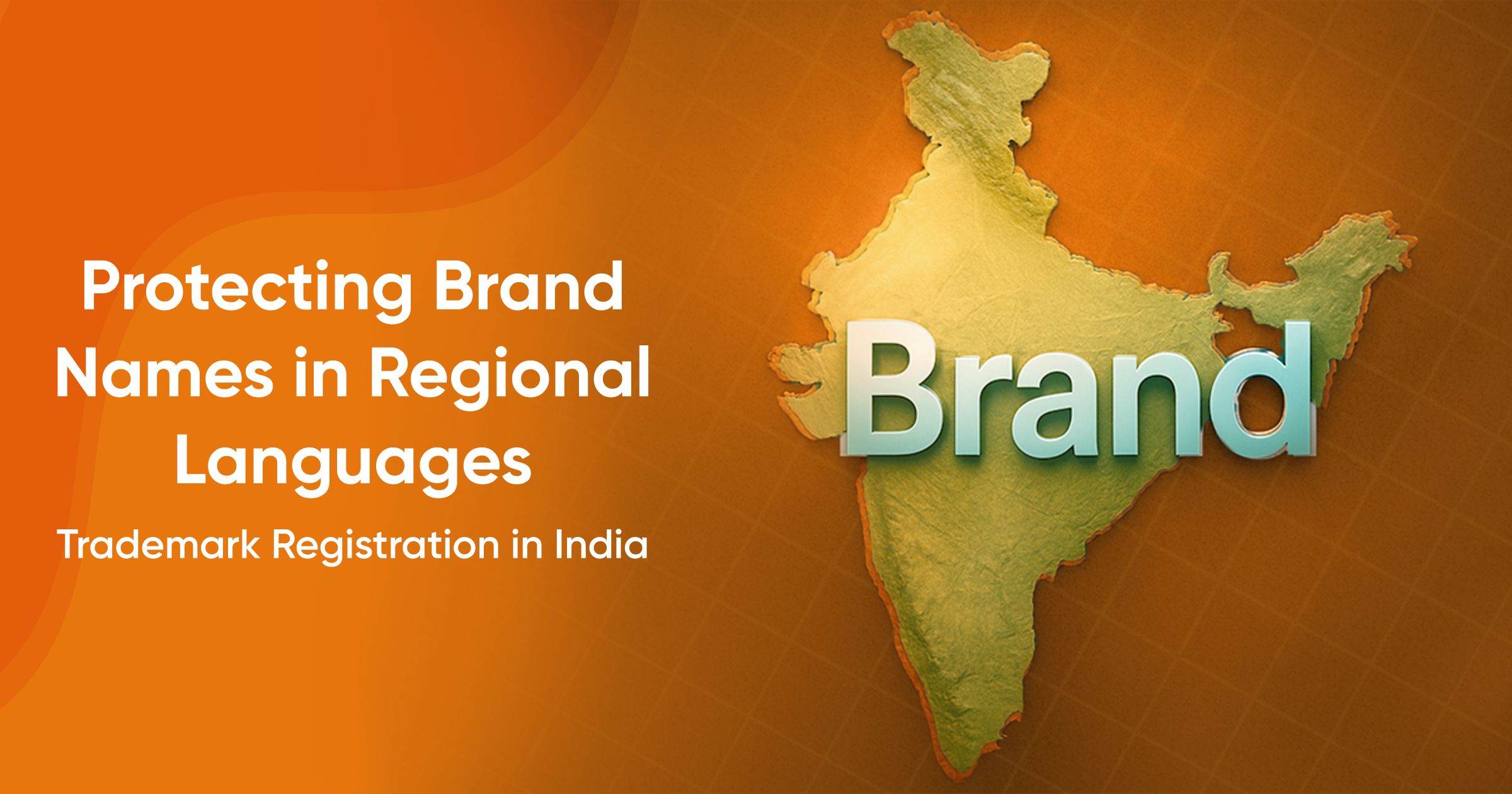India’s marketplace doesn’t just speak one language. It speaks in many voices. Twenty-two official languages. Thousands of dialects. Each one carries its own history, tone, and meaning.Your brand name might be warm and inviting in one language. In another, it could mean something completely different. Or worse, sound like something you never intended. That’s why protecting your brand in regional languages isn’t just smart. It’s survival. It’s how you keep your name - and its meaning - truly yours!
Why regional language trademarks matter
Language shapes trust. When customers see a brand name in their mother tongue, they feel it belongs to them. This builds:
- Stronger emotional connections - People respond better when spoken to in their own language.
- Market reach in rural and semi-urban areas - Where English isn’t the first choice.
- Brand loyalty - Local language branding often creates a sense of community.
But the same diversity that offers opportunity also brings legal and strategic challenges.
The legal framework
Under Rule 28 of the Trade Marks Rules, 2017, if your mark contains words or numbers in scripts other than Hindi or English, you must:
- Provide a precise transliteration and translation in Hindi or English.
- State the language of the mark.
The Trade Marks Act, 1999 also applies. Your mark must be distinctive, not generic, and must not conflict with an existing registration. Section 9(1)(c) prohibits marks that have become common in that language unless they have acquired distinctiveness.
Just like English marks, regional language marks can be opposed if they cause confusion. Opposition can come from competitors, even if the conflict is between different languages but similar meanings. For official forms, rules, and e‑filing services you can visit the IP India portal. The government’s official site.
Common challenges
Translation conflicts: A word in one language may mean the same in another. This can cause trouble when two businesses use different languages but share the same meaning. Courts may still see them as similar and likely to confuse customers.
Phonetic similarities: Many Indian languages sound alike. A brand name in one language might have the same sound as another in a different language. Example: Amrit in Hindi and Amrut in Marathi. Even if they look different, the ear can’t always tell them apart.
Shared scripts: Some languages use the same script but have different words. Hindi and Marathi both use the Devanagari script. A word may be written the same way but mean something else-or be pronounced differently. This makes it harder to prove uniqueness.
Transliteration issues: Converting a regional script into English is tricky. One word can have multiple spellings when written in English. This inconsistency can weaken a brand’s identity and make enforcement harder.
Local opposition: Well-known local brands often resist newcomers. They may argue your mark looks, sounds, or means something too close to theirs. Such opposition can delay or even block registration.
Enforcement delays: India’s diversity brings legal complexity. Cases may involve multiple states, courts, and interpretations. This slows down legal action and gives infringers more time to operate.
Case laws that shaped this space
1. J.C. Eno Ltd. v. Vishnu Chemical Co. (1940)
The court held that “Fruit Salt” was distinctive and protected in any language, preventing others from using its translation.
2. T.G. Balaji Chettiar v. Hindustan Lever Ltd. (1967)
The Tamil word Surian (Sun) was refused registration due to its similarity in meaning to HLL’s registered marks “Sun” and “Sunlight.”
3. Bhatia Plastics v. Peacock Industries Ltd. (1995)
“Sanskrit” word Mayur (Peacock) was held deceptively similar to “Peacock,” proving that even uncommon languages don’t escape scrutiny.
4. Surya Roshni Ltd. v. Electronic Sound Components Co. (1995)
“Bhaskar” (meaning Sun) was found deceptively similar to “Surya” despite being different words.
5. Gillette Company LLC v. Tigaksha Metallics Pvt. Ltd. (2017)
“TALVAR” (Sword in Hindi) was linked with “SWORD,” showing that conceptual similarity can override visual differences.
Best practices for protecting regional language brands
Conduct thorough searches: Don’t stop at just English. Check your brand name in every relevant regional language. Run phonetic searches to catch similar sounds. Check scripts to find visual matches. A missed match today can become a costly dispute tomorrow.
Register multilingual variants: Lock your brand in more than one language. Secure it in key scripts like Devanagari, Tamil, Telugu, and others if your market demands. This stops others from grabbing your name in a language you didn’t protect. Think of it as building fences in every field you own.
Keep transliterations consistent: One name, one spelling - even when switching scripts. Inconsistencies confuse customers and weaken legal claims. Choose the most accurate transliteration and use it everywhere - from packaging to ad campaigns.
Monitor the market: Watch your turf. Check e-commerce sites, social media, and local markets. Regional infringers may never appear on your main radar unless you look. The earlier you spot misuse, the easier it is to stop.
Educate local teams and partners: Many small businesses still think trademarks are only for big brands. Train distributors, franchisees, and partners to flag suspicious activity. Awareness at the ground level is your first line of defense.
Names travel fast, be faster
Delays can cost you your name. Competitors can move fast. Some may register a similar mark before you even apply. Then you’re stuck in court, spending time and money to win it back.In India’s diverse market, protecting your brand in multiple languages is not a luxury.
It’s survival.
And survival needs the right partner. Regional language trademarks aren’t just about filling a form. They need deep searches. They need careful transliteration. They need someone who knows the law, the process, and the pitfalls.Our experienced trademark lawyers at Trademarkia have helped businesses across India and abroad secure their names in multiple scripts. Protect your name before someone else does. Because in trademarks, the first to act is often the last one standing!

